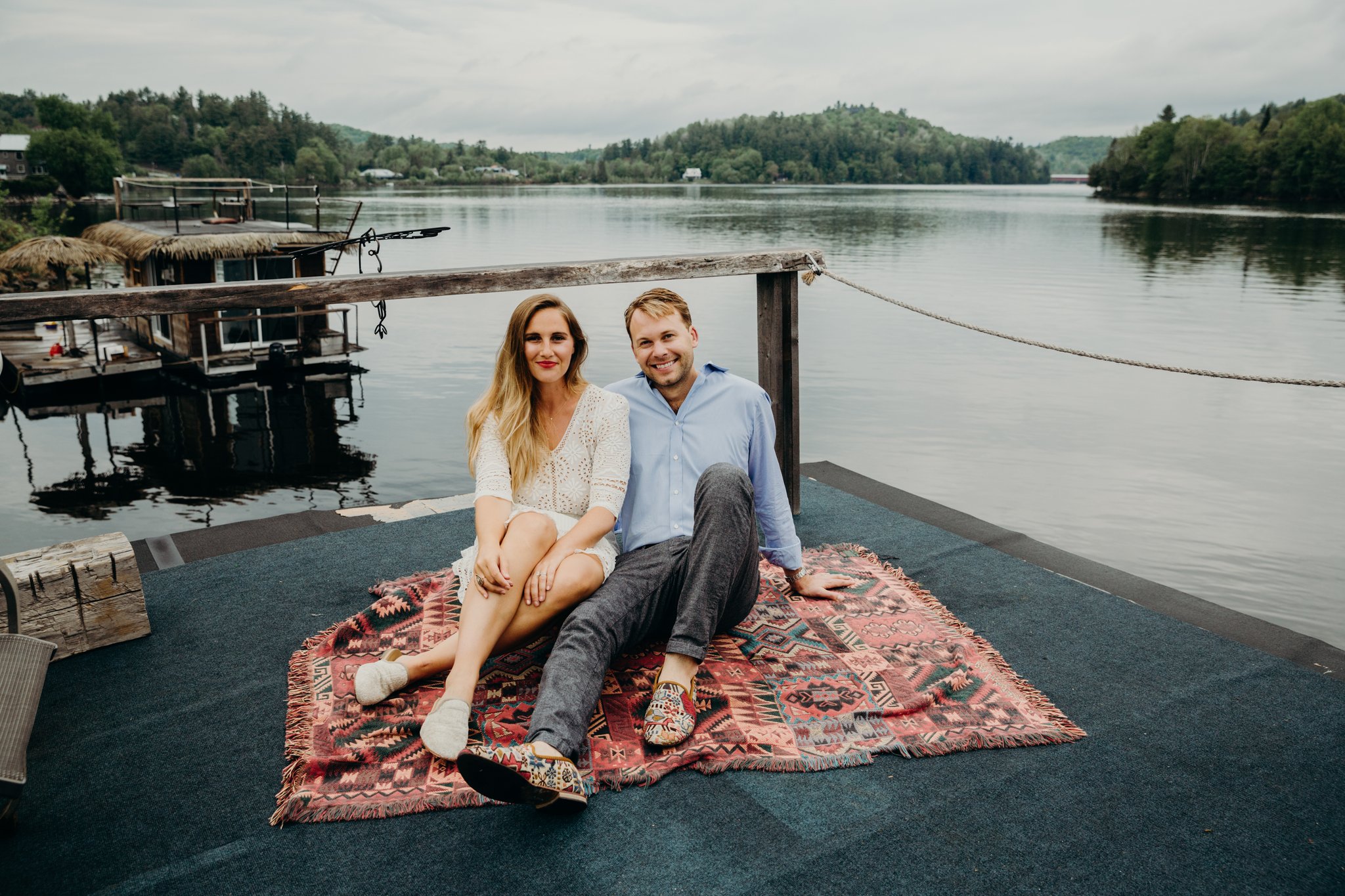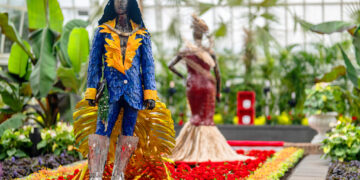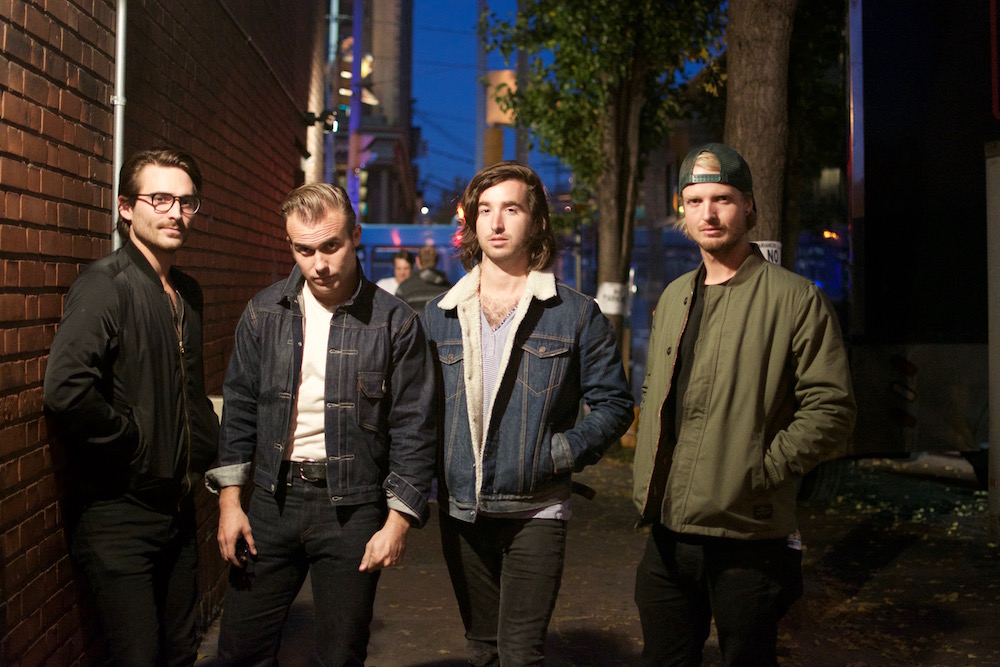Take Ten with The Shelters
or maybe a few more than ten.
This past weekend, I had the honor and privilege of getting to interview the band, The Shelters. These are some great dudes, and they’re makin some great music. We all have in our heads an idea or stereotype of how musicians will be, at least I think we all do, but these guys were so sweet and down to earth, they made me feel like I was just chattin with a few friends. Maybe they’ve not gotten cocky about it yet because they’re still on their upswing, but I’d like to think they’ll probably always be this humble and approachable. They’re currently touring their self-titled album The Shelters, and you should try to catch em if they’re coming to your city. Great music (plus, they’re pretty cute). Check out this nice conversation we had below.
*Let it be known that the responses are a compilation of things said by all band members. Though I spent a few hours with them and am familiar with who is who, I couldn’t determine with absolute certainty one voice from another on my recording. Sorry, boys.
Maniac Magazine: What genre would you classify your music as being?
The Shelters: Rock n roll. Straight rock n roll. It has influences and tinges of a lot of things—blues, psychedelics, garage, pop, but it’s definitely rock n roll. You can subcategorize everything but it really doesn’t give anyone more of an idea of what it is.
MM: Were each of you always interested in music and pursuing it?
TS: Yeah. Yes. Yes. Definitely. We were all pursuing it professionally before this band. Jacob has been in this band ever since we started performing. When we were recording music, Jacob hadn’t joined yet,
Jacob: I was still floating around in the abyss
TS: but by the time the first show came around, Jacob was a part of it. He’s a full fledged shelter. He’s pretty much the best bass player in Southern California.
MM: Where did the name The Shelters come from?
TS: We needed a name for a long time—we were kind of in our studio writing songs and we sheltered ourselves away from the rest of the world and LA and everything and just buckled down and wrote a bunch of songs, so when that word actually popped up, it kind of seemed fitting and appropriate. It’s simple, classic, and we didn’t wanna hear anymore suggestions. They got gradually worse and worse.
MM: What were some of the suggestions?
TS: Dragons Have Rights. Underaged Babes. They were more, we’ve tried to forget them.
MM: Wikipedia says you’ve only been a band since about a year ago, how do you forget?!
TS: We’re here to correct Wikipedia. We’ve been playing as this band since 2015, we were writing songs for our record before that.
Jacob: I auditioned for the band in December of 2014, to give you a frame of reference.
MM: I read that Tom Petty was an influencer, as well as a co-producer on your album. Were you all influenced by him before this, or because of this?
TS: He’s a hero of all of ours. It’s impossible to escape his influence, I would think, for any rock n roll artist, or musician, really, but anyone who wants to write a good song should definitely be influenced by him. He’s influenced so many rock n roll bands that even if you didn’t know Tom or didn’t like his music, he probably influenced another band that you liked. Or he should have. He’s so ingrained in the foundation of rock n roll music. He’s a staple.
MM: Do you think with him being part of production, it made your album sound more reminiscent of his music than it would have without him?
TS: I mean, he had a huge influence on us, but mostly, I think his greatest influence on us was for songwriting and paying attention to the craft of songwriting, and that just, you know, you come up with a cool riff or a cool sound, but the core of the song isn’t actually there, it’s not really a great song. People want to rush to put things out because they think it’s cool, but a lot of people don’t put as much time and care into it as we have, because we had him there to make sure that the songs were there. So, that’s something he really instilled in us. Yeah, I think he really ingrained the power of having a strong song in us, and that that’s how you create a timeless song.
MM: Are all of you a part of writing the songs?
TS: (Chase): Josh and I write the songs.
Jacob: Yeah, I joined post-album.
MM: I really liked “The Ghost is Gone” and “Dandelion Ridge.” The Ghost is Gone had sounds that reminded me of My Morning Jacket, and Dandelion Ridge had some Beatles sounds. Do either of these bands influence you, or what other bands have you grown up on/been influenced by? The Strokes, the Byrds?
TS: Definitely The Beatles, The Kinks, The Byrds… pretty much any bands that love rock n roll and don’t really limit themselves to one type of music.
MM: And start with “the”
TS: Yes! And start with “the!” I was just gonna say that. And end with an “s.” Well, The Who doesn’t end with an “s.” They’re the exception. Those are all our favorite bands though, for sure. The Beach Boys. We love a lot of Californian music. We dig blues too. We like stuff that wouldn’t even be apparent on our record. That’s something else that I’d say Tom’s ingrained in us. Exploring production and sound and how people are coming up with what they did. All of the things that regular listeners don’t necessarily listen to, but we love that stuff. All of the cool studio tricks, and then we apply them to our songs. That’s what’s cool about our music too and what I love about it. Josh and I were talking the other day, so many bands get caught up in just being, like, a 60s throwback band or something, right, but we’ll be like, let’s do this part like The Byrds would do it, and then let’s do this part like Led Zeppelin or whatever the hell it is. But we just try to not stay contained with what we do. And take inspiration from that, but not try to recreate it. So, no matter what, it’s gonna sound like us, it’s gonna be The Shelters, but we’re just pulling inspiration from a lot of places. At least we hope.
MM: I was going to say, your album has varied sounds, but it still is cohesive as a whole.
TS: Well that’s because, at the end of the day, it’s us playing it. If we end up playing something that’s more 70s or 80s, it could all be in one song, it doesn’t matter, we’re pretty open minded. And at the same time, we’re in a modern generation of music, so we have to be relevant. We can’t just go down every rabbit hole that we think will be cool, necessarily, we have to think about how we can make it into something that other people will like and that is accessible. We try to make it as accessible as possible while remaining true to our artistry.
MM: And you [Josh] are the singer?
TS: Yeah, me and Chase both sing, so different songs have different vocals.
MM: Yeah, I was gonna say, it sounds like a different singer on multiple songs.
TS: Yeah! Which is important, due in part to our singing and in part to the way we produce the record. Almost everything on the record has different sounds. A lot of bands don’t have the luxury of having a studio at their disposal, so, they have to go in and record a record really quick, and the record sounds the same a lot of the time. With us, some of these songs are recorded a year apart from each other or 2 years apart, so the sounds are completely different and it’s always changing—the vocals, or the techniques that we’re using, or anything, is just spur of the moment inspiration. And if it didn’t work, we come back the next day and try it out again. So if a guitar part we did was crazy and sounded kinda crazy, we’d come back the next day and be like, “that’s a little out there,” and if we wanted to make them more messed up, or cleaner, we would.
MM: Even though you love your music and love what you do, doesn’t it ever get tiring playing the same songs nearly every night?
TS: You’d think that the tiring thing would be playing the songs every night, but the tiring thing is the process of touring, and, actually probably the best part of our day is when we’re gonna get up there and when we’re gonna get to, like, let out all that stress and craze of the day, and I’m gonna look over at one of these guys and have fun playing the song I’ve played a million times. New people are gonna get turned onto it, and I’m gonna look over at Jacob and he’s gonna be rockin’ out, and I’m with my best friends and we’re just having a good time in a new place with new people, doing what we love. It makes it different every night. It’s crazy because we’re basically driving all day, or at a venue setting up just to play for 45 minutes in a new city, and then pretty much leave afterwards. So, to get that moment to just have fun and express ourselves, even if it’s playing the same songs—that’s our time to have fun, so you better have fun, cause we’re just gonna get back on the bus after. It’s really cathartic, I think it makes what we do doable. You get to release all the stress of the day, and you reset.
MM: Yeah, cause you do get to go to all these new cities, but probably don’t get to actually spend time seeing them.
TS: Yeah, unfortunately, not enough time to get out and explore. But we do sometimes have days off or short drives and try to get out and do as much as possible. Like, here, we had a radio thing, drove here, set up, sound checked, and now we’re here. But we’re gonna get sushi and walk around.
MM: Are you currently working on anything else even though you’re touring this album now?
TS: We have a 7inch vinyl that’s coming out for record store day. We have bits of our next album, just bits though because we’re in a different mode right now. It’s hard to do both. Once we get home, we’ll probably work on some stuff before we start working again. Probably after next summer we’ll try to buckle down and get it done.












